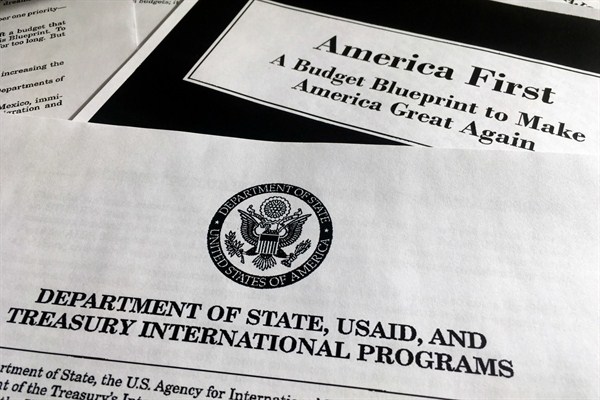As American power wanes in absolute and relative terms, the earnest officials who have designed and led U.S. foreign assistance programs are working hard to sustain and even strengthen this key component of America’s international engagement. It’s a daunting task, given the pressures to reduce funding, stop nation-building and comply with a commander-in-chief who devalues their work and has cut across the bow to eliminate categories of countries where needs and U.S. interests may be greatest.
In June, officials from the Defense and State Departments and the U.S. Agency for International Development, or USAID, released their first-ever interagency Stabilization Assistance Review. Along with many nongovernmental organizations, they have all struggled to improve outcomes in countries emerging from conflict that face chronic shortfalls of political stability, economic prosperity and security. For the U.S., these efforts have been most heavily concentrated in Iraq and Afghanistan, but countries in Central America, the Sahel and Southeast Asia also belong to this club and have been steady recipients of this type of U.S. aid.
In theory, stabilization programs are distinguishable from traditional development assistance, military aid or humanitarian assistance triggered by a particular natural or man-made disaster. The Stabilization Assistance Review provides this mouthful: “Stabilization is an inherently political endeavor that requires aligning U.S. government efforts—diplomatic engagement, foreign assistance, and defense—toward supporting locally legitimate authorities and systems to peaceably manage conflict and prevent violence.”

